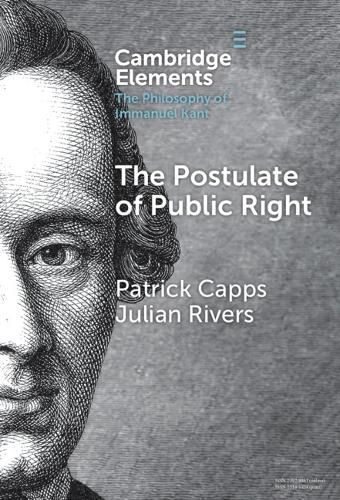Readings Newsletter
Become a Readings Member to make your shopping experience even easier.
Sign in or sign up for free!
You’re not far away from qualifying for FREE standard shipping within Australia
You’ve qualified for FREE standard shipping within Australia
The cart is loading…






Kant's main work in the philosophy of law - the Doctrine of Right (1797) - is notoriously difficult for modern readers to understand. Kant clearly argues that rightful relations between human beings can only be achieved if we enter into a civil legal condition taking a defined constitutional form. In this Element, we emphasise that Kant considers this claim to be a postulate of practical reason, thus identifying the pure idea of the state as the culmination of his entire practical philosophy. The Doctrine of Right makes sense as an attempt to clarify the content of the postulate of public right and constructively interpret existing domestic and international legal arrangements in the light of the noumenal republic it postulates. Properly understood, Kant's postulate of public right is the epistemological foundation of a non-positivist legal theory that remains of central significance to modern legal philosophy and legal doctrinal method.
$9.00 standard shipping within Australia
FREE standard shipping within Australia for orders over $100.00
Express & International shipping calculated at checkout
Kant's main work in the philosophy of law - the Doctrine of Right (1797) - is notoriously difficult for modern readers to understand. Kant clearly argues that rightful relations between human beings can only be achieved if we enter into a civil legal condition taking a defined constitutional form. In this Element, we emphasise that Kant considers this claim to be a postulate of practical reason, thus identifying the pure idea of the state as the culmination of his entire practical philosophy. The Doctrine of Right makes sense as an attempt to clarify the content of the postulate of public right and constructively interpret existing domestic and international legal arrangements in the light of the noumenal republic it postulates. Properly understood, Kant's postulate of public right is the epistemological foundation of a non-positivist legal theory that remains of central significance to modern legal philosophy and legal doctrinal method.